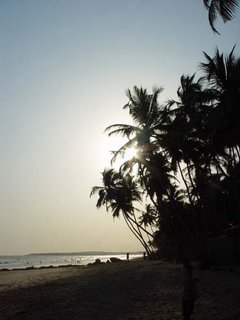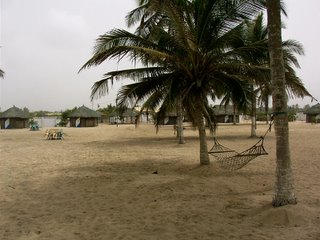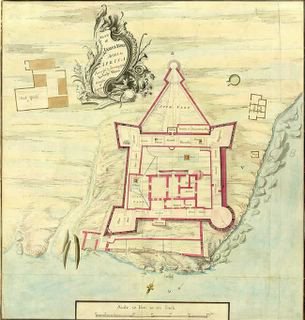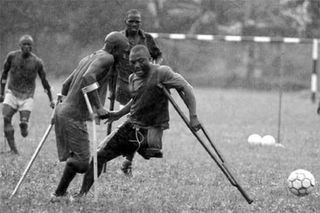As this was to be only a day trip, we decided to save time and pass by Shai Hills, a savannah wildlife sanctuary with decent opportunities (by West African standards) to spot the olive baboon, kob antelope, and bushbuck. Birds are said to be a better target -- black-bellied bustard, the Senegal parrot, and the double-spurred francolin. Will catch it next time, perhaps camping.
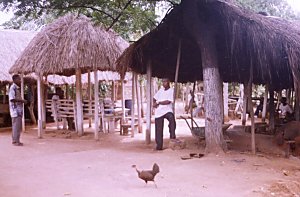
Our primary destination was the Cedi Bead Factory, west from the Kpong junction. The road was fantastic, and we were there in under an hour. Samuel parked the car under a tree as we were approached by the foreman, who also turned out to be our tour guide. I didn't quite catch his name, but I think he was also the owner, Cedi himself. He certainly seemed to know his craft.
Bottles of various colors are crushed, and the resulting find powder is then sifted from larger bits. Different colored powders are layered in molds and then fired to produce several different types of beads.
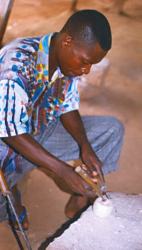
It was a facinating tour, and quite unexpected. There was no charge, though obviously we were expected to purchase a few items from the gift shop, and of course we offered the customary tip to our guide. I bought a sampler that I intend to display in a decorative bowl in my living room: a speckled fish, a translucent cross, a simple brown ball, and various balls with painted patterns. The patterns are painted on with more of the glass powder, moistened slightly to adhere to the bead, and then fired again to seal.
Cedi also maintains a stock of older trade beads. These tend to be a bit rougher in texture, and noticeably different from those made from bottle powder. They're generally from Europe. Cedi's crew till refurbish damaged ones with a quick firing to restore luster. I thought about buying a strand for a friend of mine who collects, but the price proved to be higher than the amount of cash I'd carried in my pocket. Something for the next trip.
After Cedi Beads, we continued on for lunch at the lovely Aylo's Bay Leisure Spot, with excellent grilled fish and crayfish, cold beer, and a view of fishers in dugouts casting circular nets in the Volta River. Afterward, on our way to dessert, we drove up to the Akosombo Dam for a brief tour courtesy of one of the security guards, and then tea and kelewele (fried sweet plaintain) at the Volta Lake Hotel, part of the Accor (Novotel) chain and well worth its four stars with a view over the lake itself as well as the dam and the gorge below. An excellent day trip.
